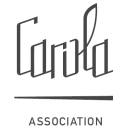|
|
|
 |
|
|
|
Antonina de Gerando - Biography
As first headmistress of the girls’ school in Cluj-Napoca (Kolozsvár), Antonina de Gerando did much for the education and training of her students, and in fact all student life was organized around her. She rejected old fashioned pedagogical principles and recognized the necessity of providing girls with an all-round education. She reckoned that science would never ‘endanger’ them, the only threat was being ‘semi-educated’, and she urged the creation of Hungarian schools in accordance with national criteria. All her works can still be read with pleasure today since they speak of the work of teachers and the education of children with such warmth, the like of which has been relatively rare in the past few decades. It is unquestionable that she devoted her entire life to the matter of education, and many of her views can appear utopian even in the 21st century. As an example of her devotion, she is known to have closely followed the careers of her students even after they left school.
Antonina de Gerando was born in Paris on 13 February 1845, the first child of French writer Auguste de Gerando and Count Emma Teleki (sister of Blanka Teleki). Her mother brought the baby to Hungary when she was just one year old, where she learnt to speak Hungarian from Blanka Teleki. On the death of her father the family returned to Paris, where Antonina finished school. Dániel Irányi was one of her teachers. After leaving grammar school she continued studying at the Sorbonne and was awarded a teaching diploma. In 1873 she moved to Hungary, settled in Budapest and lived solely for teaching.
Initially, Antonina taught at the girls’ school of the Women’s Training Association founded by Mrs. Veres Pálné in 1869 and ran classes at the Women’s Industrial Association teacher training school. Following this she held private classes in her large downtown flat for the daughters of educated families. She herself taught arithmetic, geography, singing and French, and she contracted teachers of reputation for the other subjects. In 1880, she was appointed headmistress of the Cluj-Napoca (Kolozsvár) upper girls’ school where she dealt with girls aged between 12-18 for 25 years.
In 1891, the headmistress was forced to tender her resignation because of her mother’s illness. However, her resignation was refused and she was given a year’s leave instead. From 1893, the school was extended to six years and it had more than 300 pupils enrolled. Besides her core subject of French, she also taught singing, education, arithmetic, economics and Latin. In 1885, she was offered a position as director in Subotica (Szabadka), which she rejected. From 1889, she was a member of the Humanities, Languages and Historical Sciences Department of the Transylvanian Museum Association, she was chair of the Teleki Blanka Circle and the Cluj-Napoca (Kolozsvár) Animal Protection Association, and she also took part in the work of the Pestalozzi Society. She wrote textbooks and education treatise, and her articles were published in several papers including the National Women’s Education. In addition to the biography of Blanka Teleki (1892), she published several books on economic, sociological and other topics. She was an enthusiastic promoter of French-Hungarian ties and had articles published in the Parisian Revue Pédagogique.
“Just as I can say that I belong to the city of Cluj-Napoca (Kolozsvár), so I can also say that the Cluj-Napoca (Kolozsvár) upper girls’ school is mine, because I created it and I dedicated all my energy, all my thoughts, all my endeavours for 25 of the most productive, active and fertile years of my life to it. I love this school in the same way that an artist loves his creation, and as a mother loves her child.” (Antonina de Gerando: Farewell to Cluj-Napoca (Kolozsvár)! /Búcsú, Kolozsvárhoz!/)
She was headmistress of the Cluj-Napoca (Kolozsvár) girls’ school right up until 1912 when she retired, and she died in 1914. In 2016, the Cimitirul Central (Házsongárd) Foundation paid tribute to her memory with a new headstone.
Source:
György Gaal: Antonina de Gerando. Transylvanian Pioneer of Girls’ Education (A leánynevelés erdélyi úttörője: De Gerando Antonina) (2016)
Dr. Katalin Kéri Ambrus Attiláné – Antonina de Gerando – On the Pathways of Modern Education (A modern nevelés útjain – De Gerando Antonina) (1996)
|

|
| |
|
|
|
|

